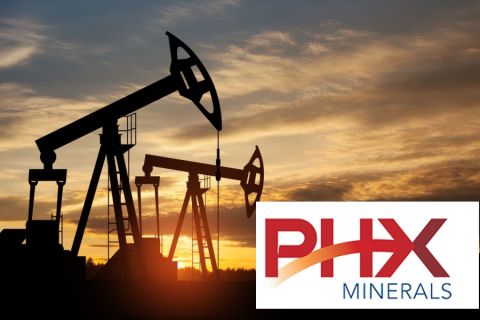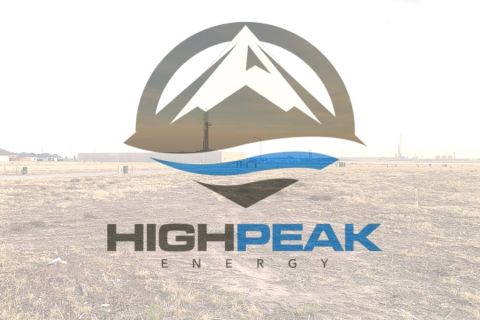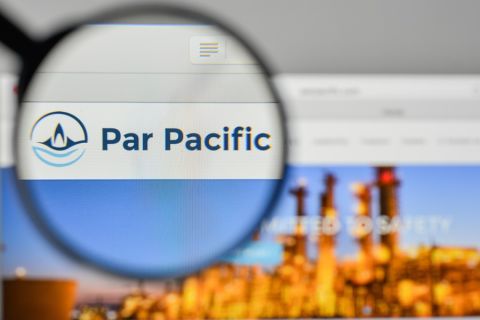Jordan Blum, editorial director, Hart Energy: We're here at NAPE in downtown Houston. I'm joined by Scott Tinker, the chairman of the Switch Energy Alliance and director emeritus of the Bureau of Economic Geology at UT Austin. Thank you so much for joining us. I enjoyed your keynote speech and one of the things you talk about is meeting in the radical middle, in that vein, I think using all of the above energy, but not just saying it in terms of political rhetoric, maybe actually meaning it. Can I get you to just elaborate on the topic?
Scott Tinker, chairman, Switch Energy Alliance: It's sort of an all of the above energy strategy. It's looking at energy security, economic security and environmental security and how all of those things come together. Interestingly though, that varies around the world, so what is secure here in the U.S. or the rich world in energy terms is much different from the emerging world who is just getting started. And that emerging world, let's say without much energy, 2 billion people plus or minus, that are just getting started they need something affordable to get going. Solar panels and off grid settings and wind turbines, but also hydro facilities and other kinds of things. And then it's the developing world, another 4 billion people where they have energy, but it's not secure to them, it comes and goes, it's intermittent, not reliable. They need reliable energy and that's more reliable grids, energy that's always on and doesn't stop every two hours randomly in my house or fuels that I can only get to them occasionally.
It's two plus four or 6 billion people in the world. It's a big number, 60%- 70% of the world's population, or more, today are living without that (reliable energy). And then finally you have your environmental security and the rich world is focused on that like climate for sure, but other things as well. So that overlap space in this dynamic world is what I call the radical middle, and it's how to make all that happen to accelerate the folks that are just emerging as quickly as possible into developing and then develop nations. The sooner the better — human flourishing, net zero poverty, that's the net zero I really care about, and it has all sorts of other good impacts and effects that come out of that.
JB: Very good. One of the possible components to global energy security is a U.S. LNG. Very recently we've had the Biden administration announce a so- called pause on new permitting. I wanted to get your take on the effect of that. Obviously there's a lot of LNG infrastructure already approved or under construction, but then longer term, is there a chill?
ST: It wasn't that long ago that we were talking about building LNG importing terminals and reliquefying the gas. Shale gas comes along and changes our global economy. Barnett Shale led the early 2000s, but then it really kicked off in Fayetteville, Haynesville, Marcellus in 2007-2010, and it brought us out of a recession. Obama was president then and cheap gas literally saved us from recession sooner than anyone else in that global recession in the world. Incredible power of that. Now we have quite a bit of gas that won't last forever. These shale basins have lives of their own, but we can export natural gas now and it helps balance the price dynamics. It helps our allies, particularly in Europe who had their natural gas cut off from Russia, so we redirected all the LNG tankers toward Europe. They are our allies, importing much of the U.S. gas, they need it.
They're not burning coal or they don't want to, there are some for now. Some of them have shut down their nuclear, so they need something for base load power. That's gas. If we pause LNG, we hurt our own economy. We hurt our allies, we hurt industry, we cost jobs, and guess what people are going to use when they don't get the gas? Coal. Because gas is used for lots of things, but one of the big ones is electricity. You're going to use coal, so it doesn't even help with global emissions. It's one atmosphere up there and if you start putting more emissions from coal because you can't have natural gas, and yes, some would argue that the tankers are emitting and they are, and if you leak methane natural gas, it's a greenhouse gas. It is. So we've got to do these things well, but it doesn't mean to stop them. That's a very political move at a not surprising political time. We're in an election year here.
JB: Do you see it having much of an impact or is that to be determined based on how long it is?
ST: I think courts will get involved and I think the public's going to get involved. There's already a bunch of Democrats who are saying, “this is crazy”, so I don't think it'll be lasting. I saw the secretary back off on the website a couple days ago: “Well, we really didn't mean pause.” Well, Jennifer, you kind of did, but maybe if you're rethinking, great. So what'll be the long-term impact? It depends, but hopefully it's not something they stay with. It's a policy that they’ll sort of say, well, that wasn't a good idea because it doesn't help anything.
JB: Sticking on the gas theme, domestically, natural gas production is way up, coal is down, but that's a U.S. story, it's not necessarily the global story. Coal usage is still very high in Asia and other parts of the world. Can I get you to explain that dichotomy a bit and where you feel we're headed on the trajectory?
ST: The richer world has gone away from coal, cut it in half, replaced it with natural gas, solar, wind, nuclear and other things. The whole world is still increasing coal production because it’s affordable and reliable in Asia. Well, guess what? Guess who's making our stuff? Asia. Our import/export ratio has just increased tremendously with China. We just continue to import more, so we're basically saying, “Hey, make our stuff cheap, but use coal to do that.” And there's one atmosphere again. So the use of global coal is rising, and global gas is rising. That ratio is very interesting. The ratio of gas to coal has gone from about just under 40% 40- 50 years ago to 90% today, gas to coal. So gas is gaining on coal proportionally, and it will pass it globally, but it's very different depending on what region in the world you're in.
JB: So pretty bullish on gas, long-term then obviously.
ST: We need it not just for power gen, we need it for the molecule that it is to make ammonia for fertilizers, or to make plastics. When you make cement and steel, you have to have a whole lot of heat. Very hard to do with electricity. You can do it some with nuclear, if you do some interesting cool things to make enough heat from electricity. Mostly you're burning molecules, so you're either burning coal to make steel or you're burning gas. I'd rather burn gas. The modern economy needs steel and cement. It's a huge part of our world. And then you can even put natural gas in vehicles, compressed natural gas, liquefied natural gas for long road trucking, transportation, electricity, fertilizers, plastics, it's a very versatile fuel, so I'm not bullish on it. It's just physics. We just need methane.
JB: Well there you go, follow the science. Well thank you so much for joining us here at NAPE. I really appreciate it. To read and watch more, please visit online hartenergy.com.
Recommended Reading
Bobby Tudor on Capital Access and Oil, Gas Participation in the Energy Transition
2024-04-05 - Bobby Tudor, the founder and CEO of Artemis Energy Partners, says while public companies are generating cash, private equity firms in the upstream business are facing more difficulties raising new funds, in this Hart Energy Exclusive interview.
PHX Minerals’ Borrowing Base Reaffirmed
2024-04-19 - PHX Minerals said the company’s credit facility was extended through Sept. 1, 2028.
HighPeak Energy Authorizes First Share Buyback Since Founding
2024-02-06 - Along with a $75 million share repurchase program, Midland Basin operator HighPeak Energy’s board also increased its quarterly dividend.
Par Pacific Asset-based Revolving Credit Bumped Up by 55%
2024-03-25 - The amendment increases Par Pacific Holdings’ existing asset-based revolving credit facility to $1.4 billion from $900 million.
From Restructuring to Reinvention, Weatherford Upbeat on Upcycle
2024-02-11 - Weatherford CEO Girish Saligram charts course for growth as the company looks to enter the third year of what appears to be a long upcycle.





